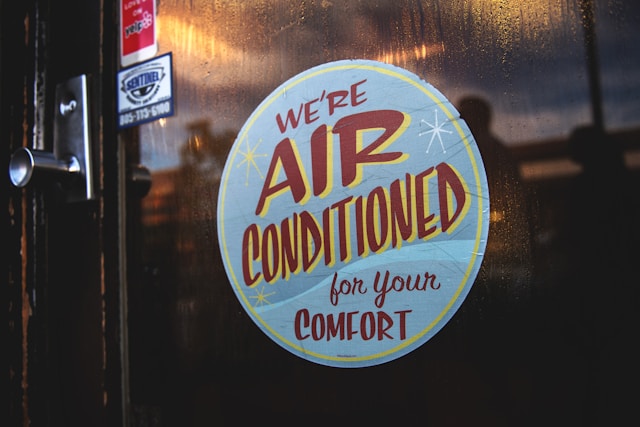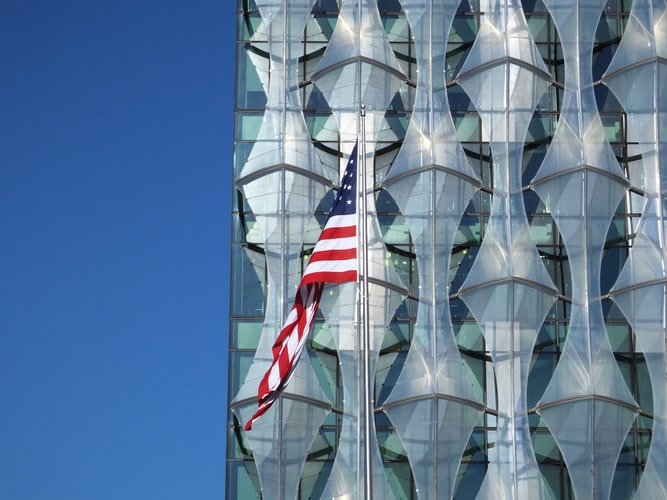Air Conditioning Vs Comfort Cooling
Air conditioning refers to the practice of using refrigerants to adjust a room’s temperature and humidity levels; it’s the tech behind summer movie blockbusters as well as industrial cooling solutions.
Precision cooling systems are tailored for specific environments like data centers and computer rooms, where there can be high concentrations of IT hardware that release high amounts of heat. With such systems in place, high density heat loads released by IT hardware can be effectively dealt with.
The Basics of Air Conditioning
Air conditioning utilizes heat transfer principles to regulate indoor temperatures and humidity levels, providing relief in industrial settings like data centers, medical equipment suites, CAD centers etc. However, today it can also be found in homes and offices worldwide.
Comfort cooling, on the other hand, is used to both cool and dehumidify interior spaces without providing precise temperature regulation – an attractive solution for office buildings and residential properties alike when residents want to remain comfortable during summer months.
Willis Carrier, an entrepreneur and talented engineer, invented the first modern air conditioning system in 1902. This invention marked an important milestone in industrialization, helping boost agriculture, manufacturing and mining sectors as well as revolutionize architectural designs such as windowless office buildings or homes with no porches.
Carrier’s system used coils filled with cold water to circulate air through his system and cool and remove humidity, controlling humidity levels in real time and instantly. He enhanced efficiency further by installing a fan that increased air circulation to increase cooling effectiveness instantly and efficiently. The cooling effect was instantaneous and effective.
Modern air conditioners work similarly to Carrier’s original system in that they use heat transfer and evaporation to remove humidity from the air, with many commercial and residential air conditioners featuring dehumidification capabilities for additional moisture removal.
Air conditioning provides unparalleled cooling power, yet it takes significantly more energy to move heat around than to directly cool an area directly. Fans, on the other hand, can achieve similar effects at much less expense.
As Britain was gripped in an extreme heatwave this summer, some property managers reported losing tenants to other landlords simply due to a lack of air-conditioning in their flat or house. Demand for climate-controlled properties will only grow, yet agents face difficulty fulfilling such demands due to period buildings often not suitable for air conditioning and new builds not having enough luxury amenities available on the market for them to cater to the higher end market.
The Basics of Comfort Cooling
Comfort cooling refers to any form of air conditioning designed to create comfortable environments for human occupants. It’s often found in offices, hospitals and residential buildings; and works by circulating refrigerant between an indoor evaporator coil and outdoor condenser unit; warm, moist air is drawn into the evaporator coil where it is then cooled and dried with refrigerant before being redistributed back into the room.
Comfort cooling systems tend to be more energy-efficient than air conditioning in terms of energy use; however, when applied in data centers and other mission critical environments they should be used with caution.
Comfort cooling cannot keep up with the high levels of heat produced by IT equipment, nor maintain an exact temperature tolerance that’s necessary in mission-critical environments.
These issues can present significant obstacles for businesses, particularly when operating data centers or server rooms. Cooling systems that aren’t optimized to the environment won’t be able to deliver the required level of precision; this may lead to unscheduled downtime as well as decreased ROI from decreased equipment life expectancies.
Due to these reasons, data centers and other mission-critical environments require a different type of cooling system than comfort cooling; precision cooling or close control cooling must remain stable to keep IT equipment at an ideal temperature and humidity tolerance level. While precision cooling may cost more, its numerous benefits make it an attractive solution for businesses operating within mission-critical environments.
The Benefits of Comfort Cooling
Comfort cooling was designed with people in mind. This form of cooling offers both sensible and latent cooling to help lower temperature and humidity levels to create more comfortable conditions in any given space, such as hospitals, schools or offices to create more conducive working and learning environments for its occupants.
Comfort air conditioning systems often incorporate advanced controls for customizability and energy efficiency. This may be accomplished using programmable thermostats, occupancy sensors, smart controls or similar technologies. Furthermore, these systems may also be optimized to reduce noise pollution to maintain an enjoyable atmosphere within a space.
Comfort cooling’s other advantage lies in its ability to lower ambient temperatures without disrupting an individual’s thermal environment. This feature can be especially valuable during sleep cycles when body temperatures naturally reduce in order to induce and sustain restful slumber; high temperatures could potentially interrupt this natural process and cause them to wake up instead of aid them.
Industrial process cooling equipment is designed to run continuously and can handle high density heat loads, making them superior to comfort cooling systems, which typically operate during warmer months to make human occupants feel more at home in their environments.
Data centers and server rooms require precise cooling solutions, as comfort air conditioning cannot handle the dense electrical heat load associated with IT equipment. Standard comfort AC cannot meet this demand effectively. As a result of failing to meet these cooling requirements for their particular environment, failure often leads to unexpected downtime, higher energy costs and reduced return on investment due to reduced equipment lifecycle. Precision air conditioning systems are specifically tailored to manage the high levels of sensible heat given off by IT equipment and can run continuously around-the-clock, all year long. This gives them an enormous edge over traditional cooling options used for office spaces; furthermore they feature improved air distribution as well as advanced filtration mechanisms that remove dust, pollen and allergens from the air.
The Cost of Comfort Cooling
Comfort cooling systems use both sensible and latent cooling techniques to effectively lower room temperatures. Sensible cooling removes heat directly from the air to lower ambient temperature while latent cooling draws moisture out of it to dehumidify it.
Energy efficiency of these systems can be measured using Seasonal Energy Efficiency Ratio (SEER) for cooling systems and Heating Seasonal Performance Factor (HSPF) for heating. The higher their SEER or HSPF rating is, the more energy-efficient their operation is.
Comfort cooling systems are typically created to cater to humans and create pleasant temperatures in homes, offices, movie theaters and hospitals.
Comfort cooling has many advantages, yet one drawback lies in its higher operating costs. Comfort cooling units require considerable amounts of power to run effectively resulting in higher electricity bills than precision systems.
Cooling can sometimes be achieved using energy-saving equipment or by simply turning off the air conditioner during unoccupied times; however, these approaches may prove insufficient and ineffective.
Before investing in an air conditioning system, it is vital to carefully consider its operating costs. An oversize system may waste energy while an undersize one might struggle to cool your space effectively.
Air cooling may not always be appropriate in certain environments. For example, when working in a data centre or server room it is crucial that any cooling system you install provides optimal conditions for your equipment and gives the optimal conditions necessary.
As Britain was gripped by an extreme heatwave, landlords of luxury property saw demand increase significantly for air-conditioning systems in their new and renovated flats and houses. Some agents have reported that potential tenants have become reluctant to rent any properties without climate control systems; and with summer heat continuing, this trend looks set to continue.

A journalist with a deep interest in regional cultures and histories, James covers Appalachian heritage, community issues, and local economic developments.










